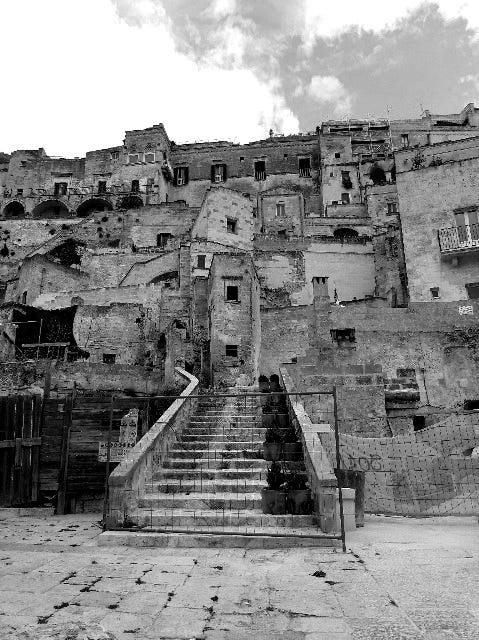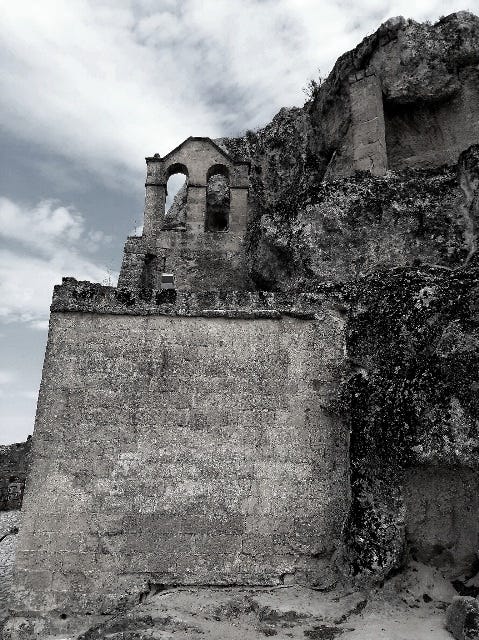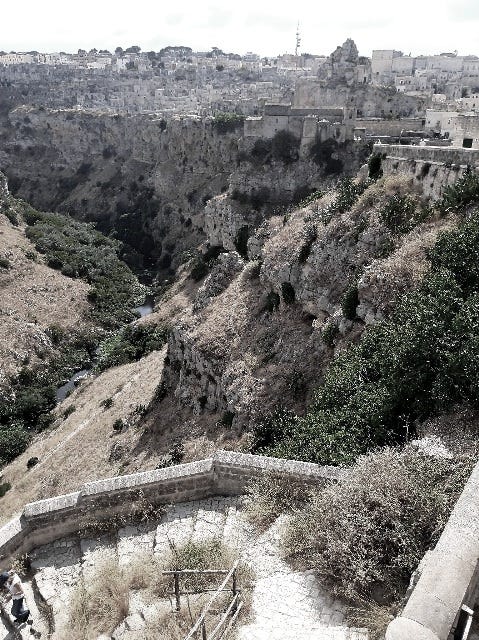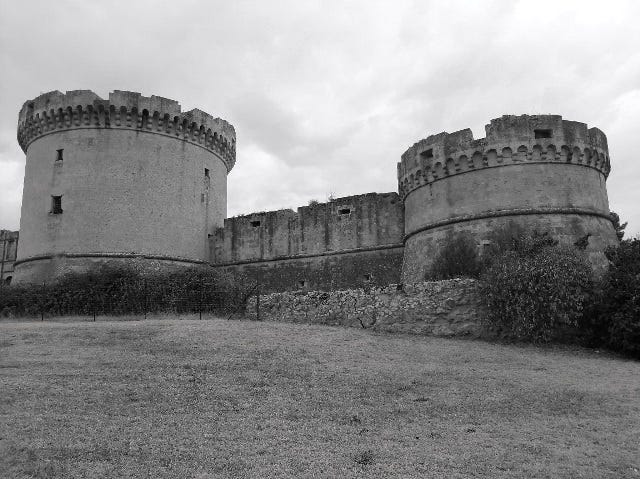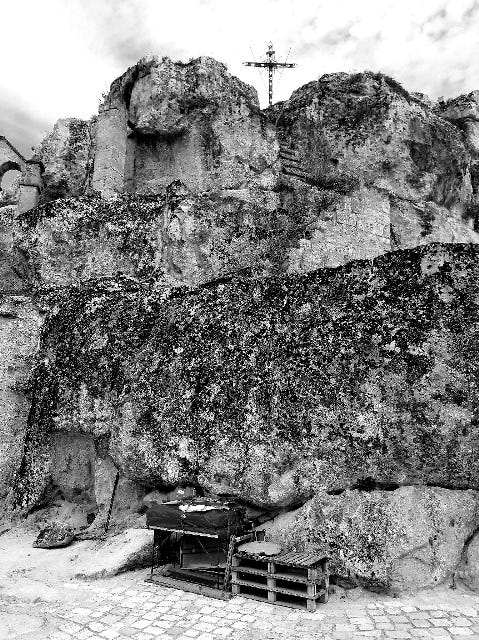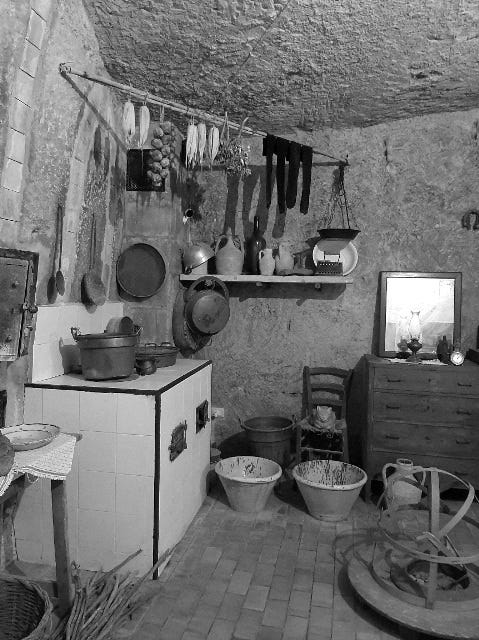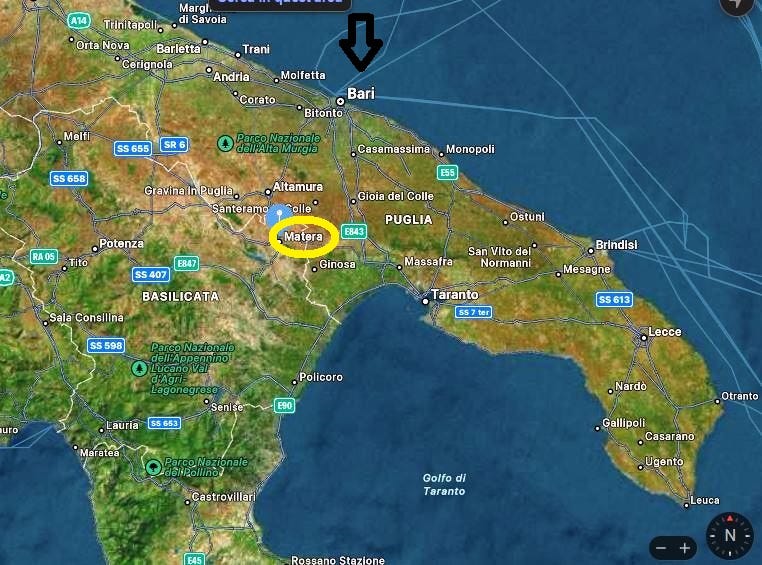🇮🇹 Come vi sentireste se il treno che vi deve portare a destinazione partisse pian pianino? Tipo… a 10km/h?
Scommetto che vi darebbe fastidio. Oppure potreste scoprire il contrario, di adorare sempre più i tempi lenti. Così era successo a me l’anno prima, quando da Lecce mi mossi verso Otranto con un trenino di appena due carrozze. Un anno dopo, eccomi ospite sulle Ferrovie Appulo Lucane in direzione di Matera.
L’occhio mi saltava fra gli schermi televisivi interni e le brutte aree cementificate della bellissima Bari. Piano piano la campagna cambiò volto; finiti gli ulivi, solo qualche albero sulla terra arata, e una strada statale. Sosta di mezz’ora a Pescariello, poi si ripartì verso Altamura e Gravina, al confine con la Basilicata, dove cambiai per Matera Centrale, l’unica stazione principale che abbia mai visto senza movimento né segnaletica.
🇬🇧 How would you feel if the train that is supposed to take you to your destination left slowly? Like… at 10km/h?
I bet it would bother you. Or you might discover the opposite, that you increasingly adore slow times. So it had happened to me the year before, when I moved from Lecce to Otranto in a little 2-carriage train. A year later, here I was a guest on the Ferrovie Appulo Lucane heading to Matera.
My eye jumped between the indoor TV screens and the cemented areas of beautiful Bari. Slowly the countryside changed face; no more olive trees, just a few trees on the plowed land, and a road. Stopped for half an hour at Pescariello, then it was off again to Altamura and Gravina, on the border with Basilicata, where I changed to Matera Centrale, the only main station I ever saw with no movement or signage.
🇮🇹 L’inverno prima a Firenze era entrato in chiesa un giovane insieme a una ragazza sarda. Si chiamava come me, Patrizio; gli chiesi di dov’era e lui rispose: lucano
“Ah!” dissi io “Guarda combinazione, ho in agenda Matera...” Lui mi scrisse un elenco di paesini e mi citò Cristo si è fermato a Eboli, romanzo di Carlo Levi che fino a quel momento conoscevo solo per il titolo. Eppure fu scritto proprio davanti a Palazzo Pitti, cioè a un isolato da dove abito io!!
Quel libro tratta di un’esperienza di viaggio non di piacere né di emigrazione, ma una prigione a cielo aperto. Fu infatti per sospetta attività antifascista che Levi venne confinato nel paesino di Alliano in provincia di Matera. Venne poi graziato a seguito di certe vittorie in Africa, ma ormai quell’esperienza gli aveva cambiato la vita, spingendolo a farsi portavoce della questione meridionale, e facendogli esprimere volontà alla sua morte di venire seppellito laggiù. Fra quella che considerava la sua vera gente.
🇬🇧 The winter before in Florence a young man had entered the church together with a Sardinian girl. His name was the same as mine, Patrizio; I asked him where he was from and he said: Lucanian
"What a coincidence - I said - I have Matera on my agenda..." He wrote me a list of small towns and quoted Christ Stopped at Eboli, a novel by Carlo Levi that until then I knew only by its title. Yet it was written right in front of the Pitti Palace, very close to where I live!!!
That book is about a travel experience not of pleasure or emigration, but an open-air prison. It was in fact for suspected anti-fascist activity that Levi was confined to the small village of Alliano in the province of Matera. He was later pardoned as a result of certain victories in Africa, but by then that experience had changed his life, prompting him to become a spokesman for the Southern question, and causing him to express a wish at his death to be buried there. Among those he considered his true people.
🇮🇹 Basilicata… terra povera e molto trascurata dai re borbonici. Ai tempi del fascismo aveva ripreso il suo primo nome, Lucania, che però anticamente comprendeva anche parte di Campania e Calabria
Cacciatori Lucani furono chiamati i volontari che si unirono a Garibaldi, essendo la Basilicata la prima terra meridionale della penisola a dichiarare annessione al Regno d’Italia. Ma che significa Lucania? Forse terra di luce, nel senso di terra da dove si vede sorgere il sole? O bosco sacro, o terra dei lupi… I nomi non sono mai dati a caso, ma fanno riferimento alle popolazioni antichissime che abitarono queste zone prima dell’espansione dei Romani.
Levi dice che Cristo non è mai arrivato in quelle terre, che si è fermato prima, a Eboli, in Campania, dove il treno lascia il mare e si addentra in quelle terre isolate. Non lo Stato, dice Levi, ma Cristo si è fermato... sottointende di certo qualcosa di più intimo e personale.
Perché il contadino diffida dello Stato? Da dove viene il brigantaggio? È presto per rispondere, ci vogliono libri. Io ne ho già uno in mano, Il pensiero meridiano, gradito regalo che considero la mia porta di accesso al Sud, e che sto leggendo… piano piano.
🇬🇧 The Basilicata region… poor land and much neglected by the Bourbon kings. At the time of fascism it had resumed its first name, Lucania, which anciently also included parts of Campania and Calabria
Cacciatori Lucani (Lucanian Hunters) were called the volunteers who joined Garibaldi, Basilicata being the first Southern land in the peninsula to declare annexation to the Kingdom of Italy. But what does Lucania actually mean? Perhaps land of light, in the sense of land from where the sun is seen rising? Or sacred forest, or land of wolves... The names are never given at random, but refer to the very ancient peoples who inhabited these areas before the expansion of the Romans.
Levi says that Christ never arrived in those lands, that he stopped first, at Eboli, in Campania, where the train leaves the sea and enters those isolated lands. Not the state, Levi says, but Christ stopped... he certainly intends something more intimate and personal.
Why does the peasant distrust the state? Where did brigandage come from? For me, it is still too early to answer that; books are needed. I already have one in hand, Il Pensiero Meridiano (The Meridian Thought), a cherished gift that I consider my gateway to the South, and which I am reading... at a slow pace.
🇮🇹 Quell’anno fa a Matera, uscendo dalla stazione, non sapevo da che parte andare. Vicino al castello incrociai un signore che gentilmente cominciò a raccontarmene qualcosa
Il conte che ne aveva ordinato la costruzione venne ucciso, e nessuno vi abitò mai. Mi disse poi dove prendere in direzione dei Sassi, ma lo fece oralmente, e io non mi ricordai tutto per filo e per segno. Dalla piazza principale, Vittorio Veneto, accanto al Banco di Napoli, scorsi per caso una segnaletica che indicava una discesa. Ero perplessa: saran sottoterra?? No, naturalmente. Ma quel passare sotto le costruzioni fu come passare sotto a un tunnel. Eccoli lì, i famosi Sassi… ed ecco improvvisamente me come teletrasportata in un’altra dimensione, più silenziosa della Matera moderna.
Riguardo le foto, sento ancora il venticello, e quello sfondo di terra come desertica. Ovunque pietre. Un mondo dove il tempo si è fermato, e tu resti a guardare senza sapere come dirlo. E allora dici che sono terre dimenticate da Dio.
🇬🇧 That year ago in Matera, coming out of the station, I couldn’t find my way. Near the castle I came across a gentleman who kindly began to tell me about it
The count who ordered its construction was killed, and no one ever lived there. He then told me where to take in the direction of the Sassi, but he did it orally, and I didn't remember everything off the top of my head. From the main square, Vittorio Veneto, next to the Banco di Napoli (Bank of Naples), I happened to glimpse a sign indicating a descent. I was puzzled: will they be underground?? No, of course not. But that passing under the buildings was like passing under a tunnel. There they were, the famous Sassi... and suddenly I felt like into another dimension, quieter than modern Matera.
I look back at the photos, still feeling the breeze, and that background of earth like desert. Everywhere stones. A world where time has stood still, and you stand by and don't know how to express it. Then you say these are Godforsaken lands.
🇮🇹 I Sassi sono i due rioni che compongono il centro storico di Matera: Sasso Barisano e Sasso Caveoso. È una città antichissima scavata nella roccia, con sotterranei, cisterne naturali e chiese rupestri
Nelle case-grotta abitava una famiglia in una stanza a fianco della stalla. Ma erano arrivati a viverci in troppi, in condizioni igieniche non salutari, con l’effetto doloroso di una mortalità infantile altissima. Di tutto questo nessuno si preoccupò mai fino a quando Carlo Levi se ne fece portavoce, e il governo della neonata Repubblica finalmente mise in atto un piano per sfollare le famiglie in abitazioni più consone. Matera si sviluppò come città, e oggi i Sassi sono stati recuperati come valore storico-culturale, diventando il primo sito del Sud ad essere riconosciuto patrimonio dell’umanità.
🇬🇧 The Sassi are the two districts that make up the historical centre of Matera: Sasso Barisano and Sasso Caveoso. It is a very ancient city carved out of the rock, with underground passages, natural cisterns and cave churches
In the cave-houses used to live one family in a room next to the stable. But too many had come to live there, under unhealthy conditions, with the painful effect of very high infant mortality. No one ever worried about all this until Carlo Levi spoke up and the government of the newly established Republic finally put a plan in place to displace the families to more suitable housing. Matera then developed as a city, and today the Sassi have been restored as a cultural and historical value, becoming the first site in Southern Italy to be recognized as world heritage.


